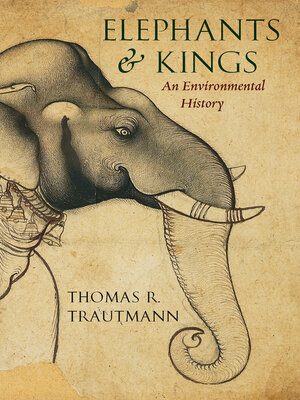Elephants and Kings
ebook ∣ An Environmental History: An Environmental History
By Thomas R. Trautmann

Sign up to save your library
With an OverDrive account, you can save your favorite libraries for at-a-glance information about availability. Find out more about OverDrive accounts.
Find this title in Libby, the library reading app by OverDrive.



Search for a digital library with this title
Title found at these libraries:
| Library Name | Distance |
|---|---|
| Loading... |
Because of their enormous size, elephants have long been irresistible for kings as symbols of their eminence. In early civilizations—such as Egypt, Mesopotamia, the Indus Civilization, and China—kings used elephants for royal sacrifice, spectacular hunts, public display of live captives, or the conspicuous consumption of ivory—all of them tending toward the elephant's extinction. The kings of India, however, as Thomas R. Trautmann shows in this study, found a use for elephants that actually helped preserve their habitat and numbers in the wild: war.
Trautmann traces the history of the war elephant in India and the spread of the institution to the west—where elephants took part in some of the greatest wars of antiquity—and Southeast Asia (but not China, significantly), a history that spans 3,000 years and a considerable part of the globe, from Spain to Java. He shows that because elephants eat such massive quantities of food, it was uneconomic to raise them from birth. Rather, in a unique form of domestication, Indian kings captured wild adults and trained them, one by one, through millennia. Kings were thus compelled to protect wild elephants from hunters and elephant forests from being cut down. By taking a wide-angle view of human-elephant relations, Trautmann throws into relief the structure of India's environmental history and the reasons for the persistence of wild elephants in its forests.







